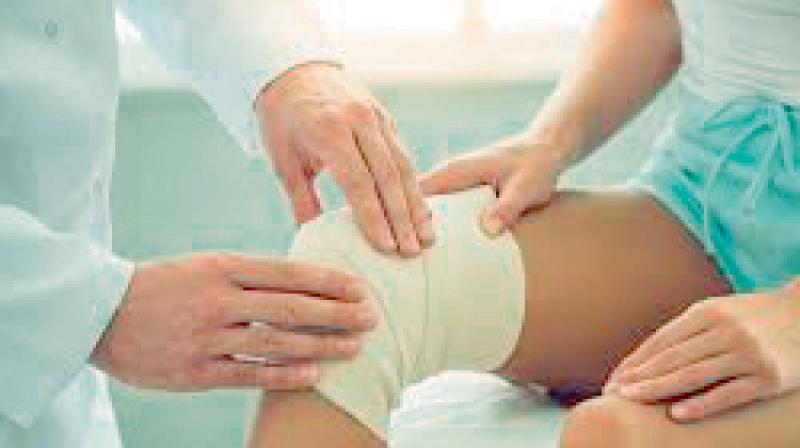Weak in the Knees
Knee arthritis is emerging as a major disability burden in India due to its association with the lifestyle and habits of the Indian population.

An estimated 15 crore Indians suffer from knee problems, making it the fourth major disability burden in the country. Similarly, the incidence of knee arthritis is as much as 15 times higher than in the West.
Overuse of the knees in terms of squatting, lifestyle changes, obesity, injuries and also a decrease in bone mineral density in post menopausal women are some of the major causes. Age related degeneration is also one of the major reasons for the increasing incidence of knee arthritis even as life expectancy has increased, explains Dr M. Hari Sharma, Senior Consultant Orthopaedic surgeon at Apollo Hospitals.
Q Why is knee arthritis emerging as the fourth major disability burden in India when compared to the West? What are the reasons for knee arthritis?
Knee arthritis is emerging as a major disability burden in India due to its association with the lifestyle and habits of the Indian population, where squatting and sitting cross- legged dominate the day-to-day activities. The overuse of knees in Indians is found to be higher than in the Western population.
Q It is stated that knee arthritis in Indians is 15 times more than in Western nations. Does it affect both men and women equally?
With diagnosis improving and more awareness among the people, the disease is being detected better. The incidence is now showing 15 times more than the West. But women are suffering more than men due to the estrogen deficiency. The decrease in the bone mineral density, commonly seen in post menopausal and post hysterectomy Indian women is also one of the main causes. The incidence of osteoarthritis in the female population is significantly higher when compared to the male population.
Q What are the activities of Indians which lead to overuse of the knees?
Frequent squatting predisposes one to develop arthritis of the knee. Prolonged squatting is a strong risk factor for tibiofemoral knee OA. Sitting cross-legged and kneeling also considerably increases load on the joints.
QWhat is the role of injuries in causing knee arthritis?
Repetitive occupational related injuries, injuries like joint trauma, meniscal or cruciate ligament injuries are more likely to accelerate the degeneration in the knee joints.
Q Is it easy to diagnose or does it take a long time for the body to show the symptoms? Also, what are some of the common symptoms?
In the early phase of the disease, patients experience localised joint pain, which worsens with activity and is relieved by rest. As the disease progresses, severe pain is present during the rest period also. There can also be shooting pains noted while climbing stairs or standing for too long.
Q What are the mechanisms to cope with knee pain?
Medication NSAIDs/analgesics to reduce pain, inflammatory cascade, chondroprotective agents for articular cartilage of knee joints, viscosupplementation when required and weight reduction.
Q What are the methods to control the deterioration of the knee once it sets in?
Methods to control the deterioration of the knee are:
l Avoid squatting / uphill walks and runs, stair climbing/sitting cross-legged.
l Regular physiotherapy to strengthen muscles around the knee joint.
l Correction of estrogen deficiency and bone mineral density in females.
l Weight reduction in obese / overweight individuals.
Q Can those who suffer from knee pain exercise in the gym, walk, swim or carry out free hand exercises at home? What are the limits that they must draw?
Aerobic exercises like walking, cycling and swimming can be taken up in patients with osteoarthritis. They help in increasing muscle tone, bone density and range of motion. However, high-intensity activities like running, football, basketball, etc. should be avoided. Ultimately, exercise is patient dependent and should be planned according to individual circumstances and comfort level.
Q Often, knee replacements are suggested but how long must a person wait and try natural remedies before opting for replacement? Who is qualified for a knee replacement and who must avoid it?
Surgery and total knee replacement is recommended for patients with severe deformity and instability. If the person cannot do daily activities and is severely handicapped, then only it is advisable. Otherwise, medical management and therapy must be opted for.

